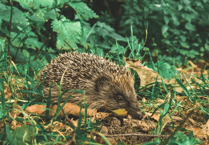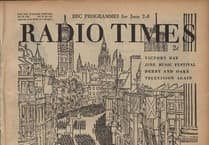Sadly many thousands of animals are killed by litter in the UK and the Isle of Man every year – they can choke on it, eat it (and suffer digestive issues), become entangled in it, or become constricted by it.
Of course, we all know that dropping litter is an anti-social and environmentally unfriendly thing to do, but even when we are disposing of litter responsibly, or recycling it, we can be endangering animals.
Everyday objects that seem perfectly safe can become hazardous when found accidentally by animals, whether they be domestic or wild ones.
Tin cans – animals looking for food can get trapped in cans or injured by sharp edges, and so pinch them shut before you recycle or dispose of them.
Elastic bands – by cutting open an elastic band before disposing of it, you may be preventing it becoming wrapped around a bird’s beak; and always pick up the red elastic bands that are sometimes left on the ground after a postal delivery – they look remarkably like food and could choke an unsuspecting bird or mammal.
The plastic that holds cans together – always cut open the loops before recycling or disposing of these holders, because animals can become entangled in them and suffer deep, usually fatal, wounds.
The seals on milk carton – these are the little plastic hoops that break off when a carton or bottle cap is first opened, and birds in particular are at risk from them becoming wedged onto their beaks, meaning that they can’t eat or drink. Simply by cutting open the hoop you will prevent this from happening.
And whether you love or loathe the new ‘attached’ tops on plastic bottles, please take time to screw the top back on the bottle when you’ve finished with it so that small mammals don’t get stuck inside.
Balloons – we all love balloons at a party and but please take the time to cut them up into pieces before disposing of them. They are a serious choking hazard for animals.
And please remember that mass balloon releases are illegal in the Isle of Man, but sadly they are still permitted in England (and take place regularly as a tribute to people who have died).
The accompanying photograph shows a partially eaten balloon found in a field full of sheep near Castletown earlier this year. Luckily, none of the sheep were seriously injured.
Plastic bags are less common than they used to be, but they can still pose an all too common threat to wildlife and should be picked up and disposed of correctly.
The ‘new kid on the block’ from a litter perspective is the all too ubiquitous vape.
Research suggests that half a billion vapes are now purchased every year in the UK, with almost a fifth of UK adults having bought a vape that is single-use only (i.e. disposable).
It is estimated that over a million disposable vapes are thrown away every week. These products are made up of potentially hazardous materials, and so they pose a threat to wildlife both from a poisoning perspective and a choking one.
So, apart from picking up litter wherever you can, even other people’s, what else can you do to help?
Unless a wild animal is trapped or constricted, a sad rule of thumb is that its flight or fight instincts are so strong that if you’re able to catch it then it’s likely to be severely ill or injured.
If you find an injured wild animal please remember that the best course of action is to take it straight to a vet where it will be given emergency treatment free of charge.





Comments
This article has no comments yet. Be the first to leave a comment.